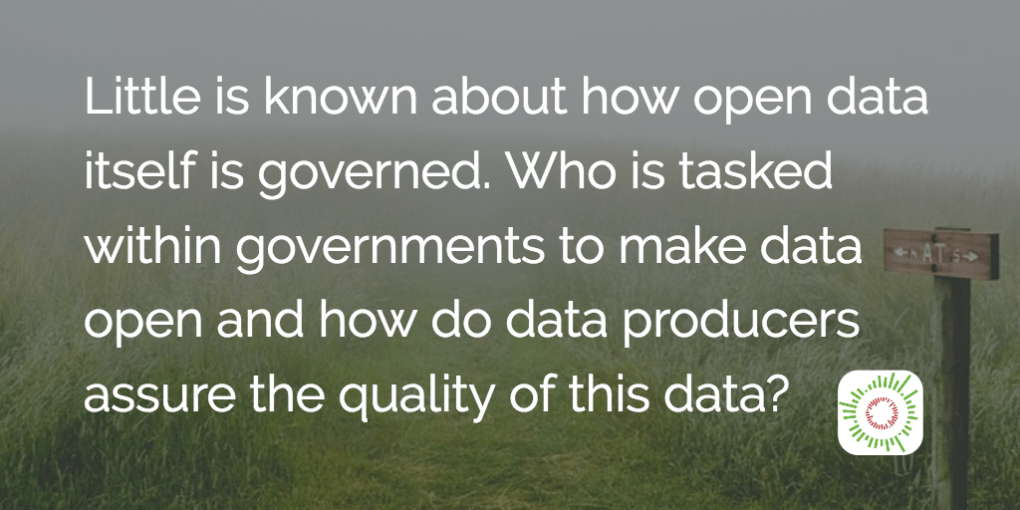Blog Post by Ana Brandusescu, Carlos Iglesias, Danny Lämmerhirt, and Stefaan Verhulst (in alphabetical order): “The presence of open data often gets listed as an essential requirement toward “open governance”. For instance, an open data strategy is reviewed as a key component of many action plans submitted to the Open Government Partnership. Yet little time is spent on assessing how open data itself is governed, or how it embraces open governance. For example, not much is known on whether the principles and practices that guide the opening up of government — such as transparency, accountability, user-centrism, ‘demand-driven’ design thinking — also guide decision-making on how to release open data.
At the same time, data governance has become more complex and open data decision-makers face heightened concerns with regards to privacy and data protection. The recent implementation of the EU’s General Data Protection Regulation (GDPR) has generated an increased awareness worldwide of the need to prevent and mitigate the risks of personal data disclosures, and that has also affected the open data community. Before opening up data, concerns of data breaches, the abuse of personal information, and the potential of malicious inference from publicly available data may have to be taken into account. In turn, questions of how to sustain existing open data programs, user-centrism, and publishing with purpose gain prominence.
To better understand the practices and challenges of open data governance, we have outlined a research agenda in an earlier blog post. Since then, and perhaps as a result, governance has emerged as an important topic for the open data community. The audience attending the 5th International Open Data Conference (IODC) in Buenos Aires deemed governance of open data to be the most important discussion topic. For instance, discussions around the Open Data Charter principles during and prior to the IODC acknowledged the role of an integrated governance approach to data handling, sharing, and publication. Some conclude that the open data movement has brought about better governance, skills, technologies of public information management which becomes an enormous long-term value for government. But what does open data governance look like?

Understanding open data governance
To expand our earlier exploration and broaden the community that considers open data governance, we convened a workshop at the Open Data Research Symposium 2018. Bringing together open data professionals, civil servants, and researchers, we focused on:
- What is open data governance?
- When can we speak of “good” open data governance, and
- How can the research community help open data decision-makers toward “good” open data governance?
In this session, open data governance was defined as the interplay of rules, standards, tools, principles, processes and decisions that influence what government data is opened up, how and by whom. We then explored multiple layers that can influence open data governance.
In the following, we illustrate possible questions to start mapping the layers of open data governance. As they reflect the experiences of session participants, we see them as starting points for fresh ethnographic and descriptive research on the daily practices of open data governance in governments….(More)”.